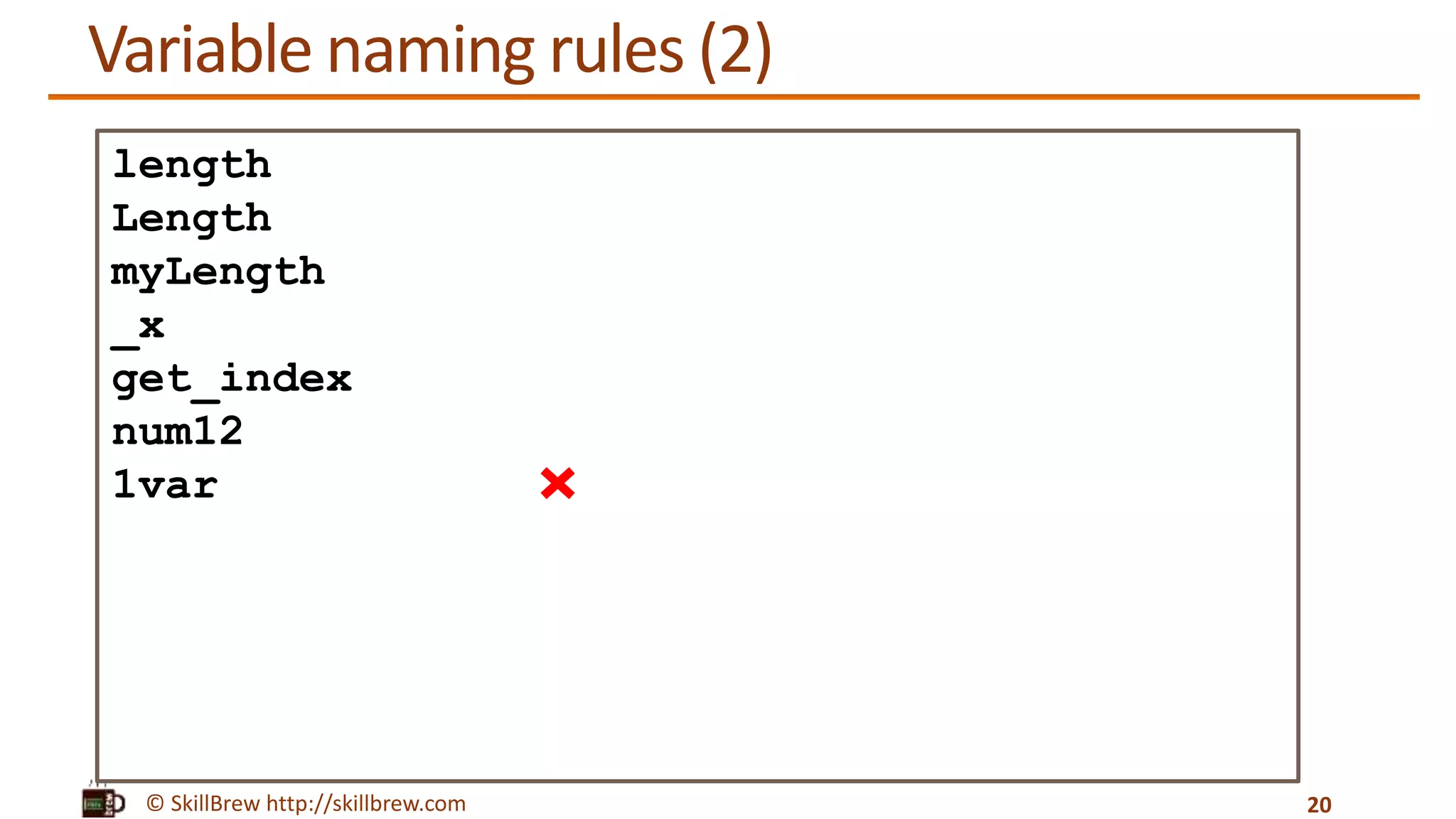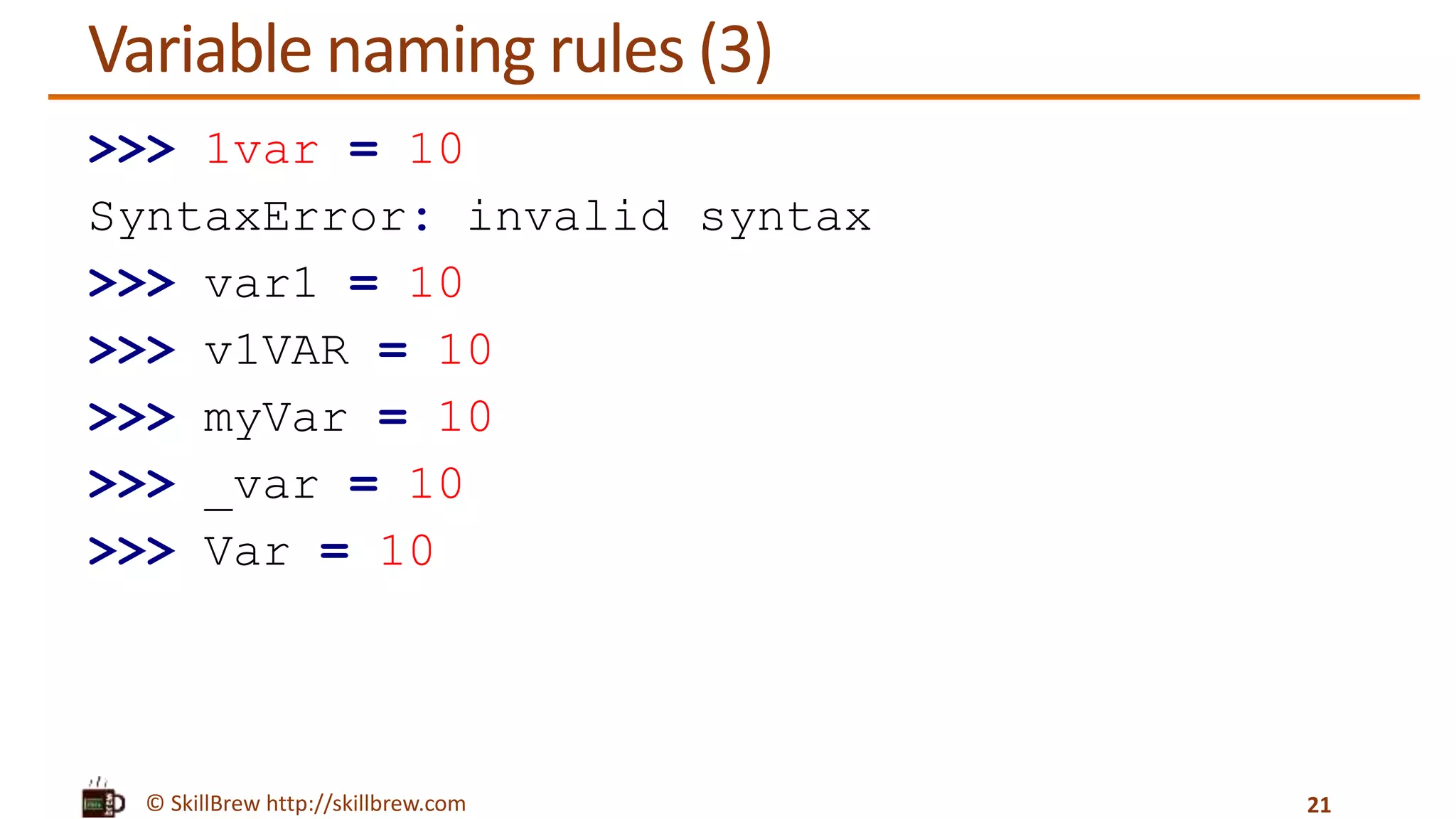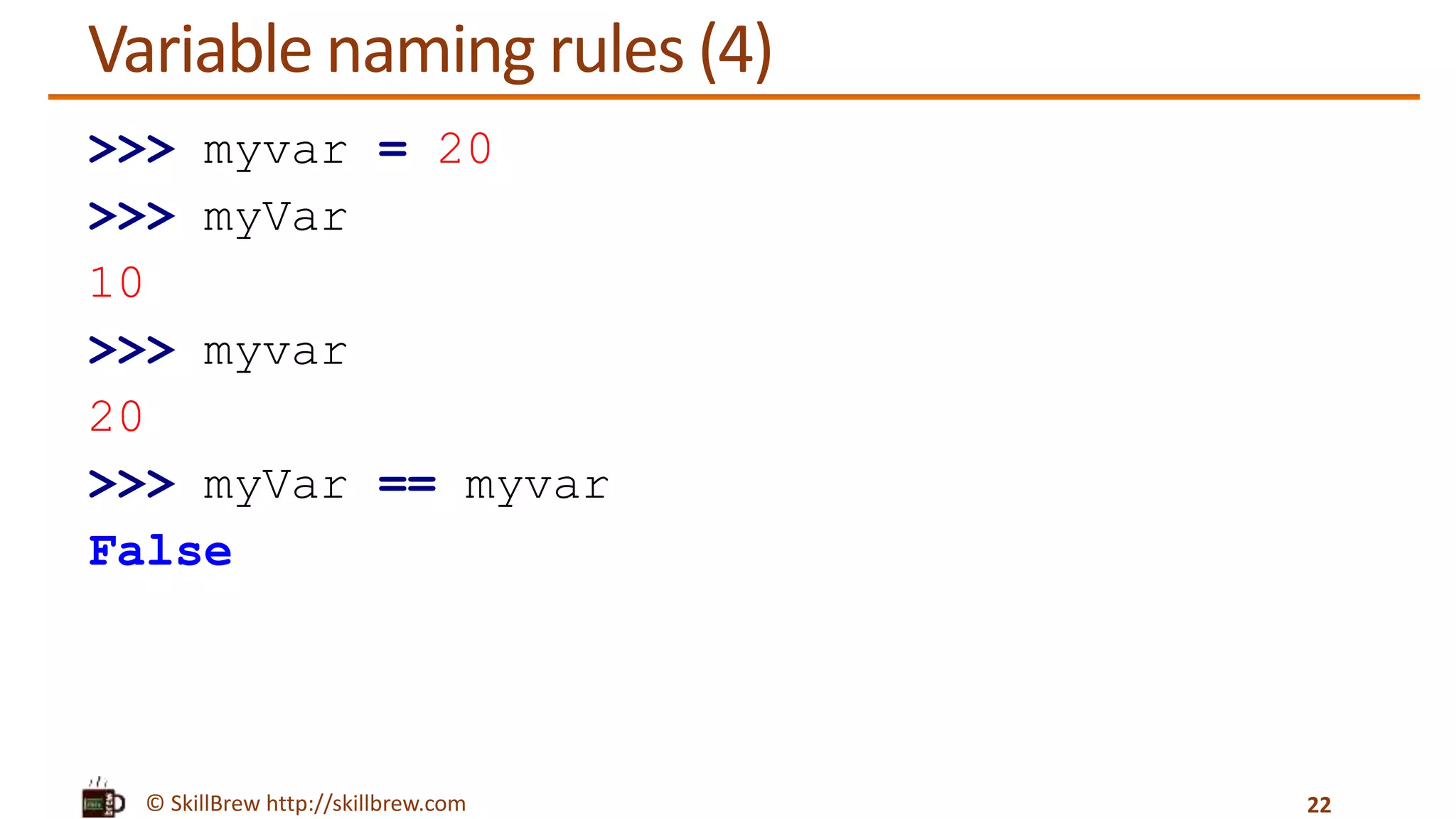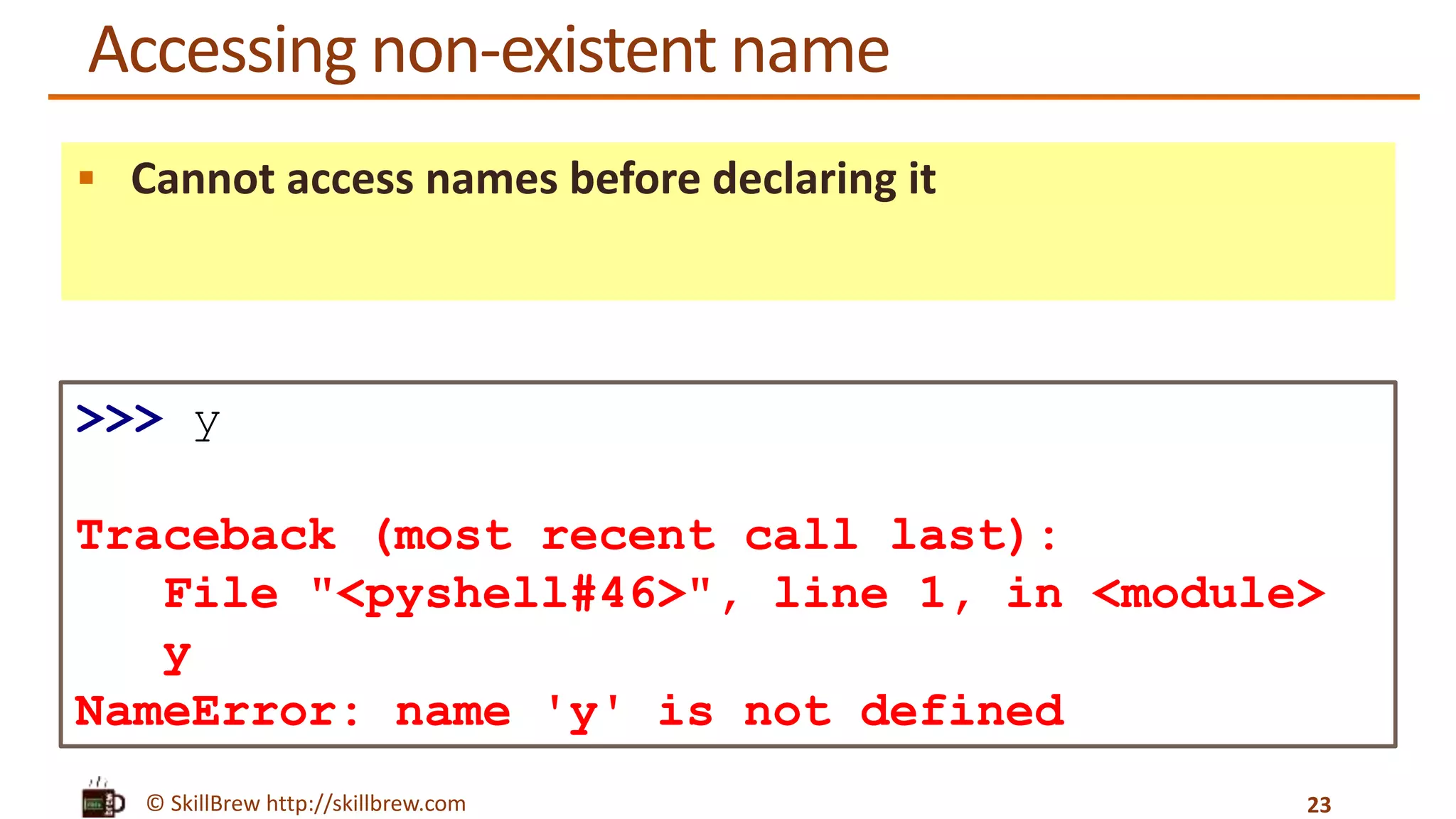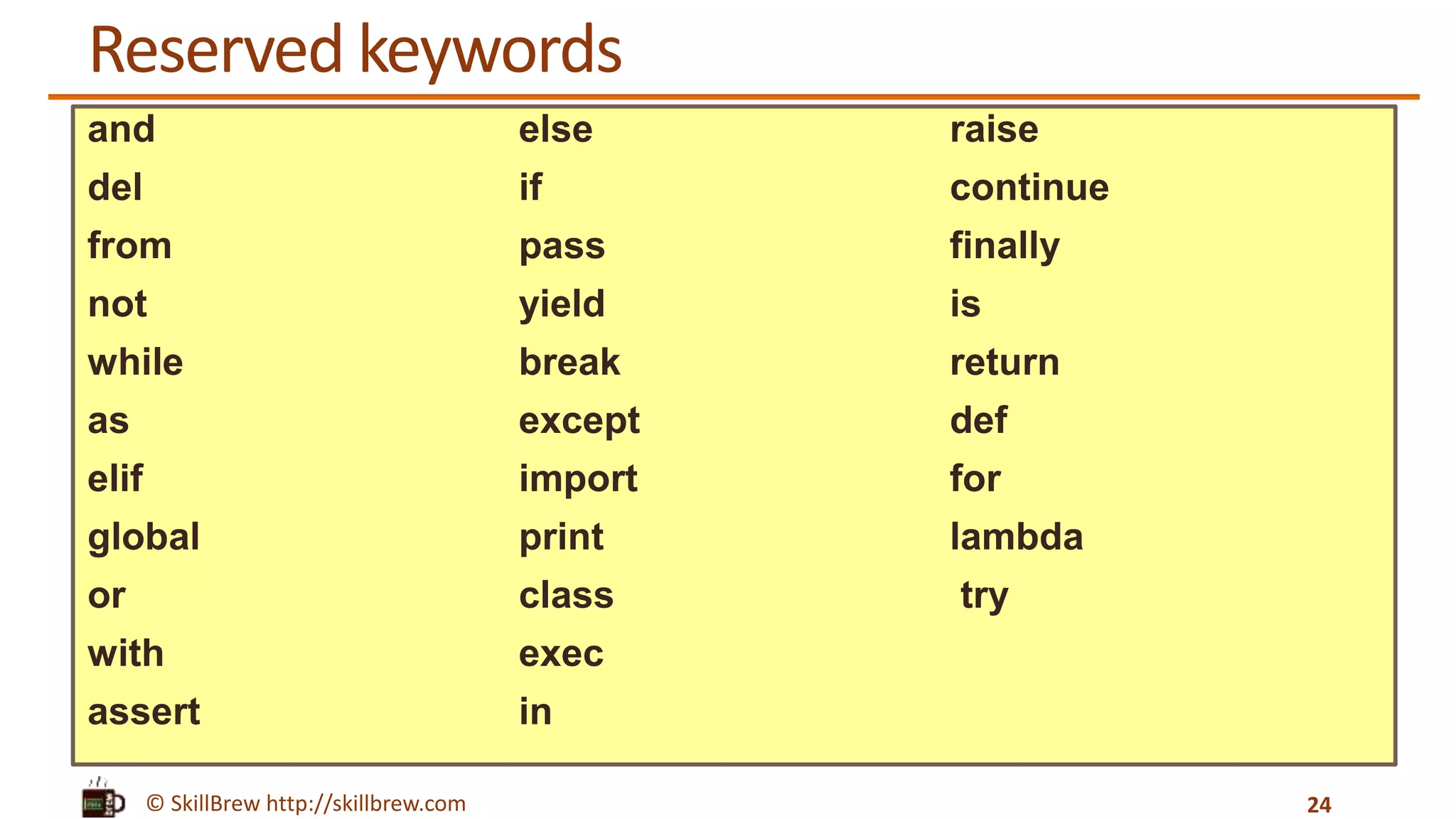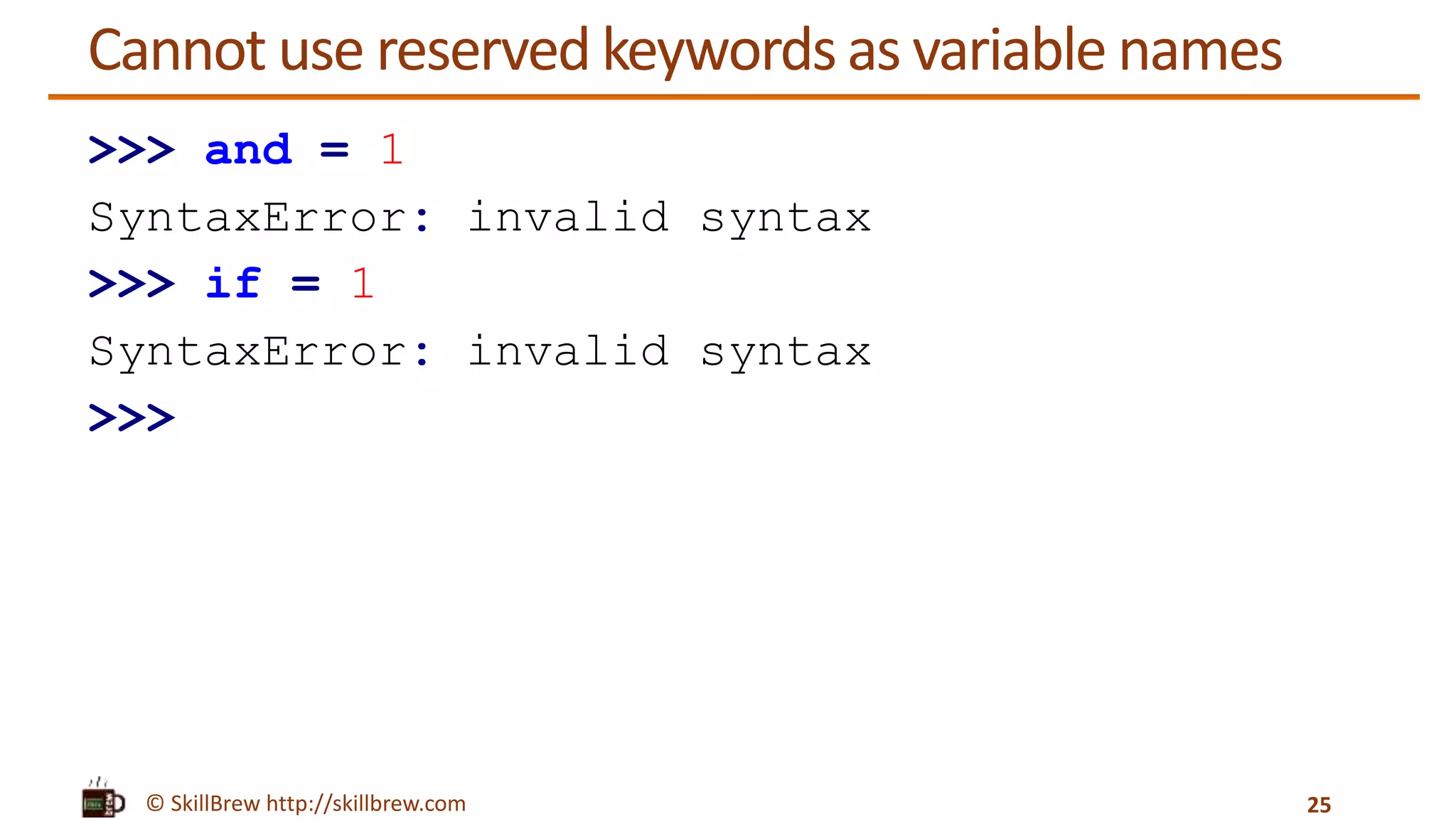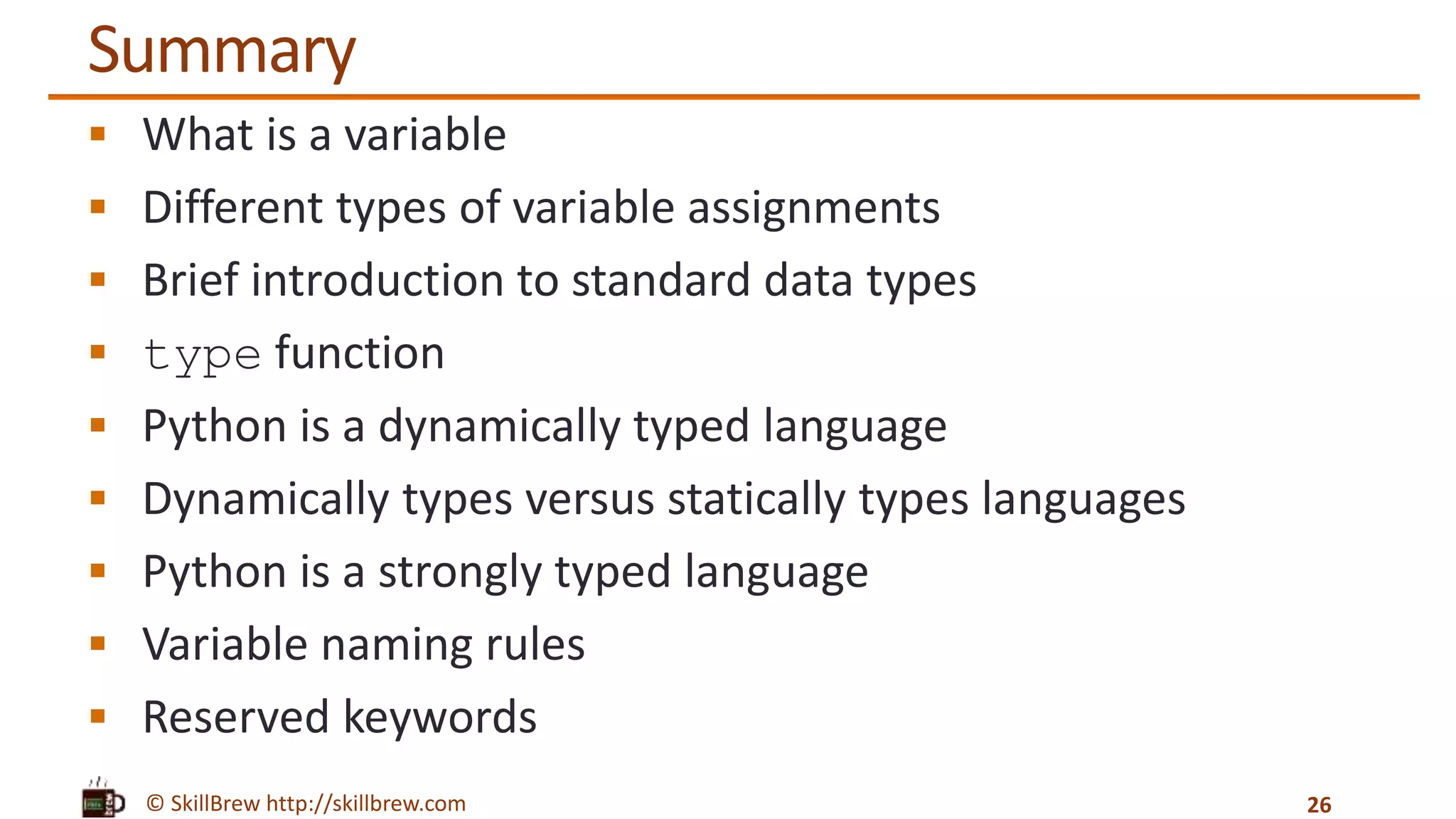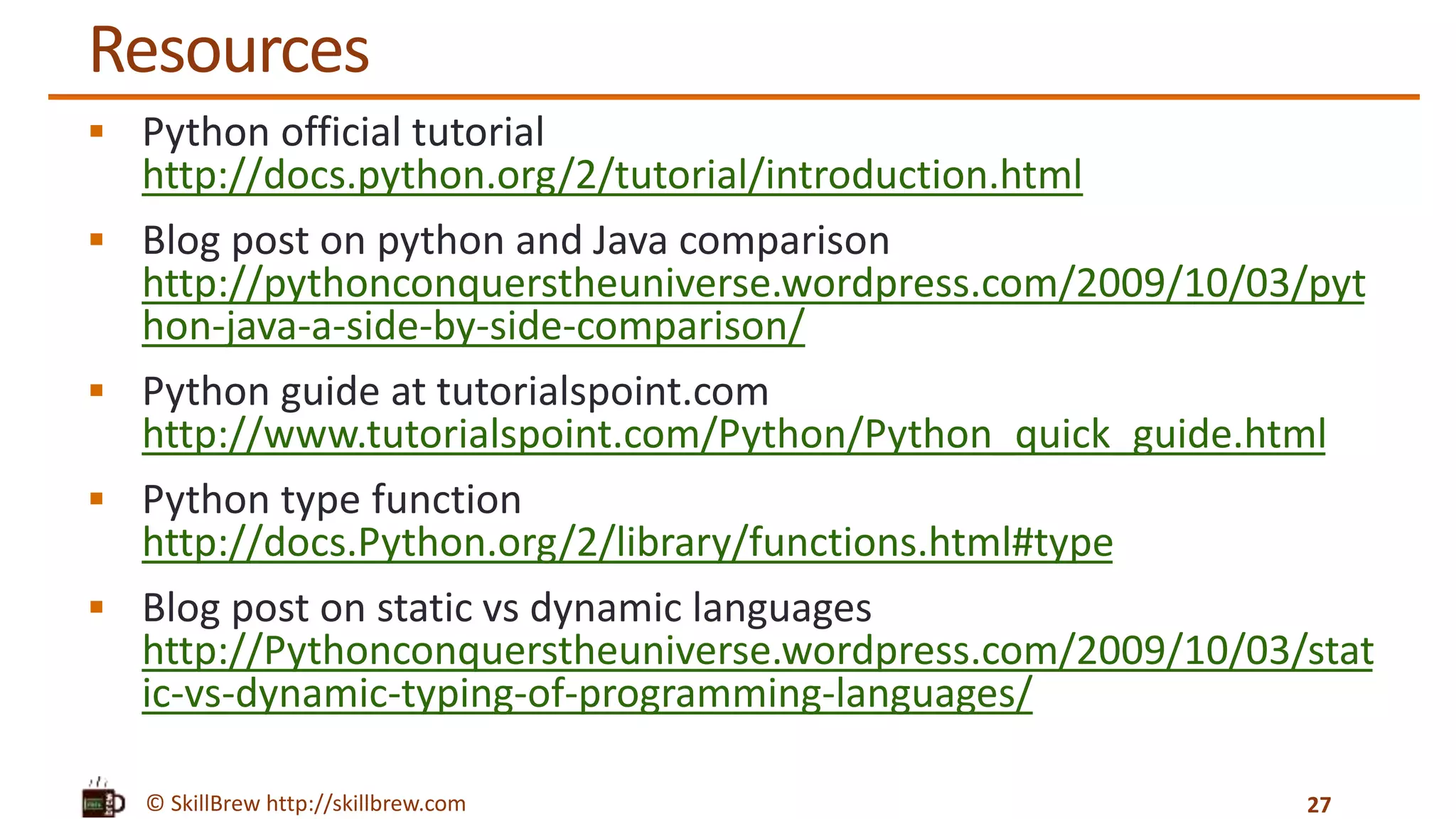This document provides an introduction to variables in Python. It defines a variable as a memory location that stores a value, and notes that variables can store different data types. It demonstrates assigning values to variables, including multiple assignments in one statement. The document also discusses Python's dynamic typing, variable naming rules, and reserved keywords. It provides examples of built-in data types like integers, strings, lists, tuples and dictionaries. Finally, it lists some additional resources for learning more about variables and data types in Python.
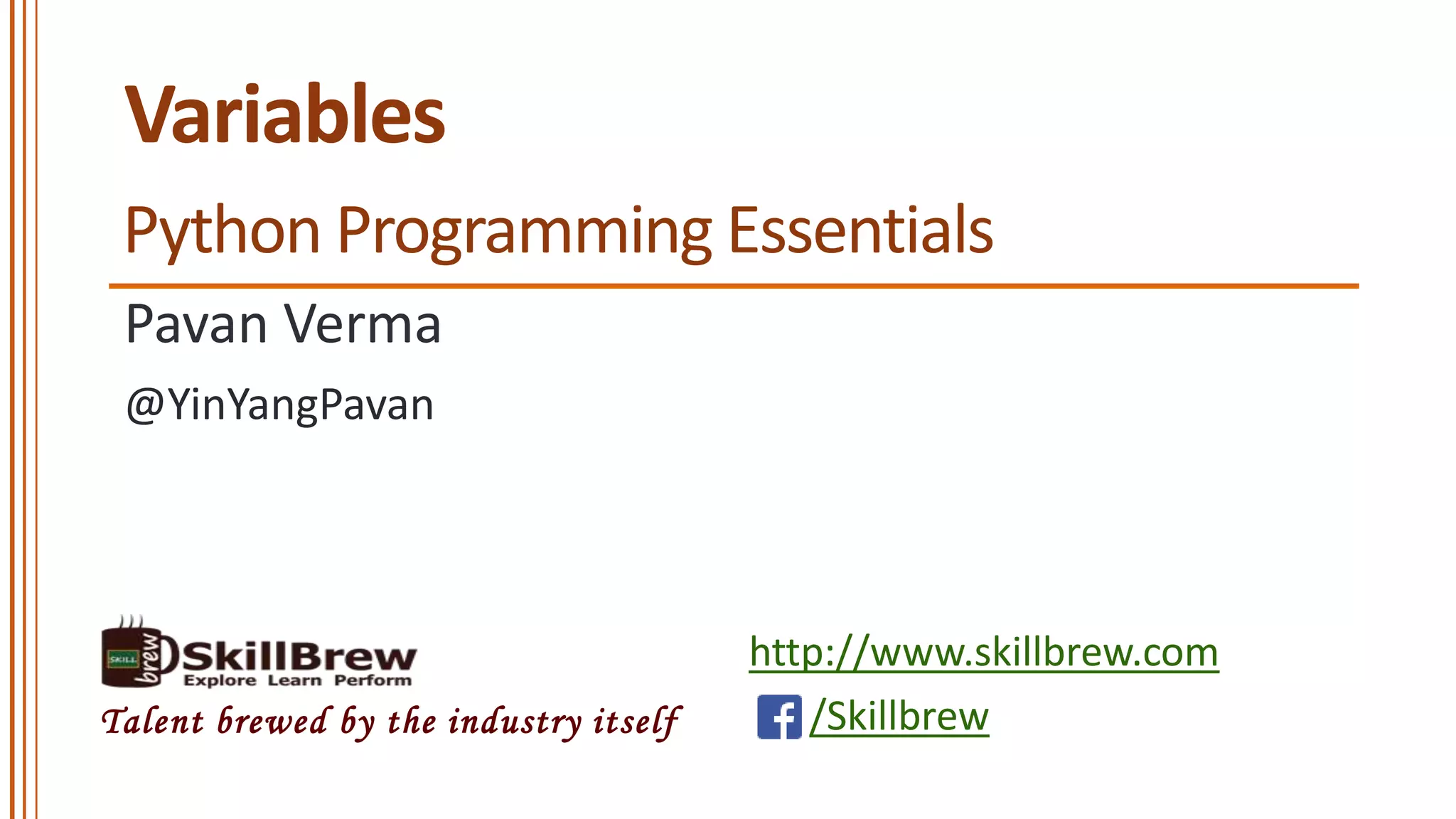
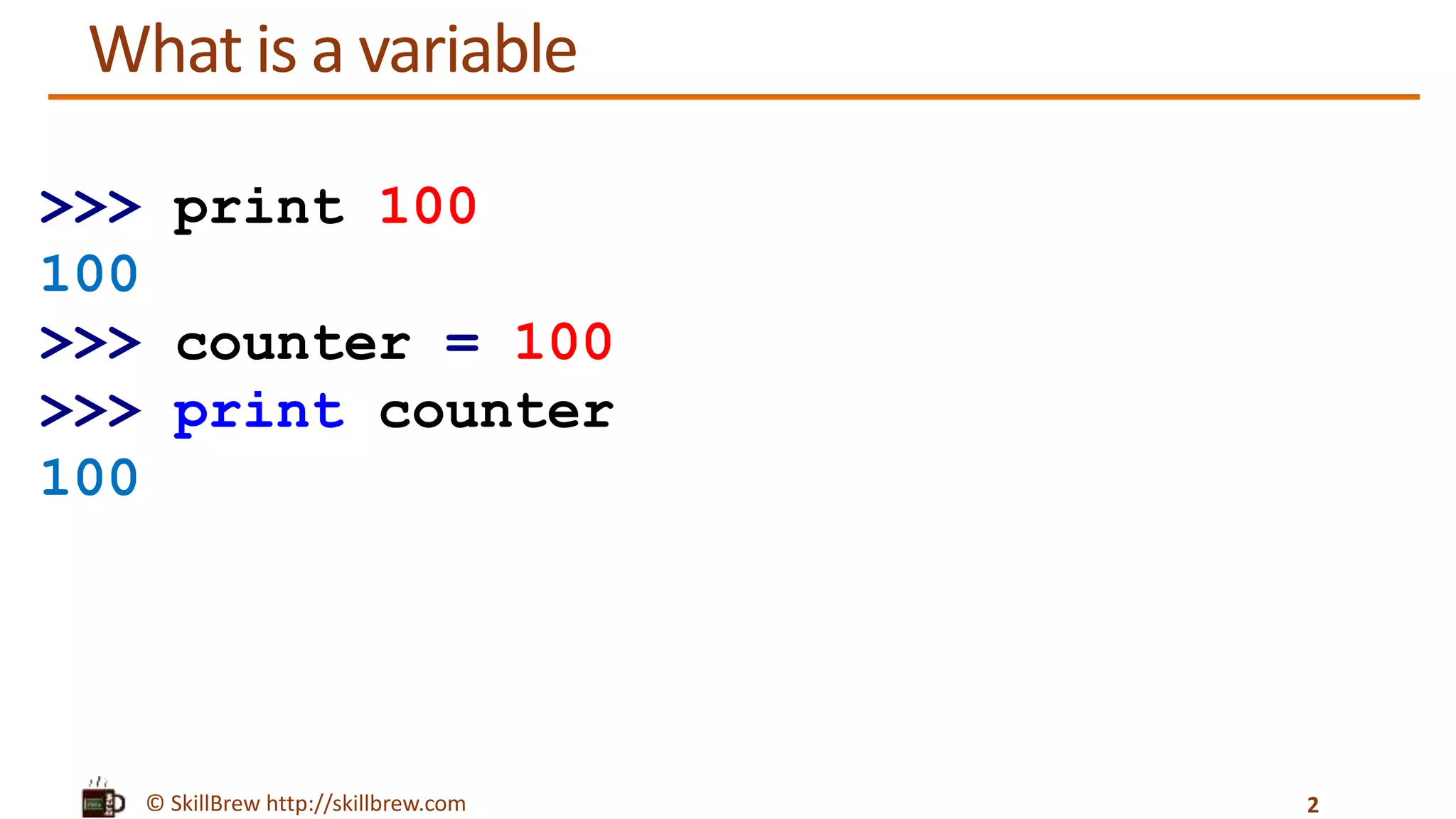
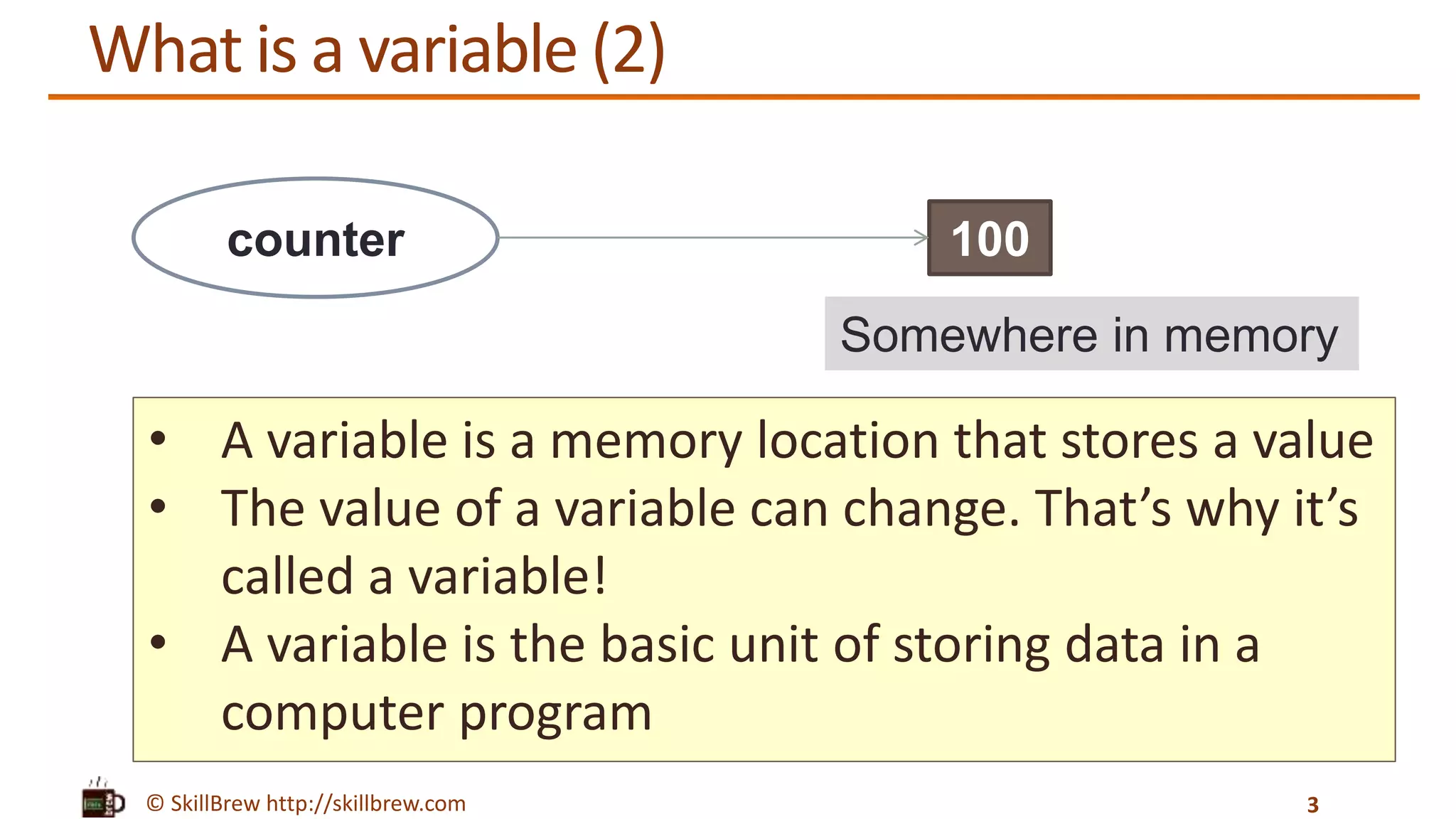
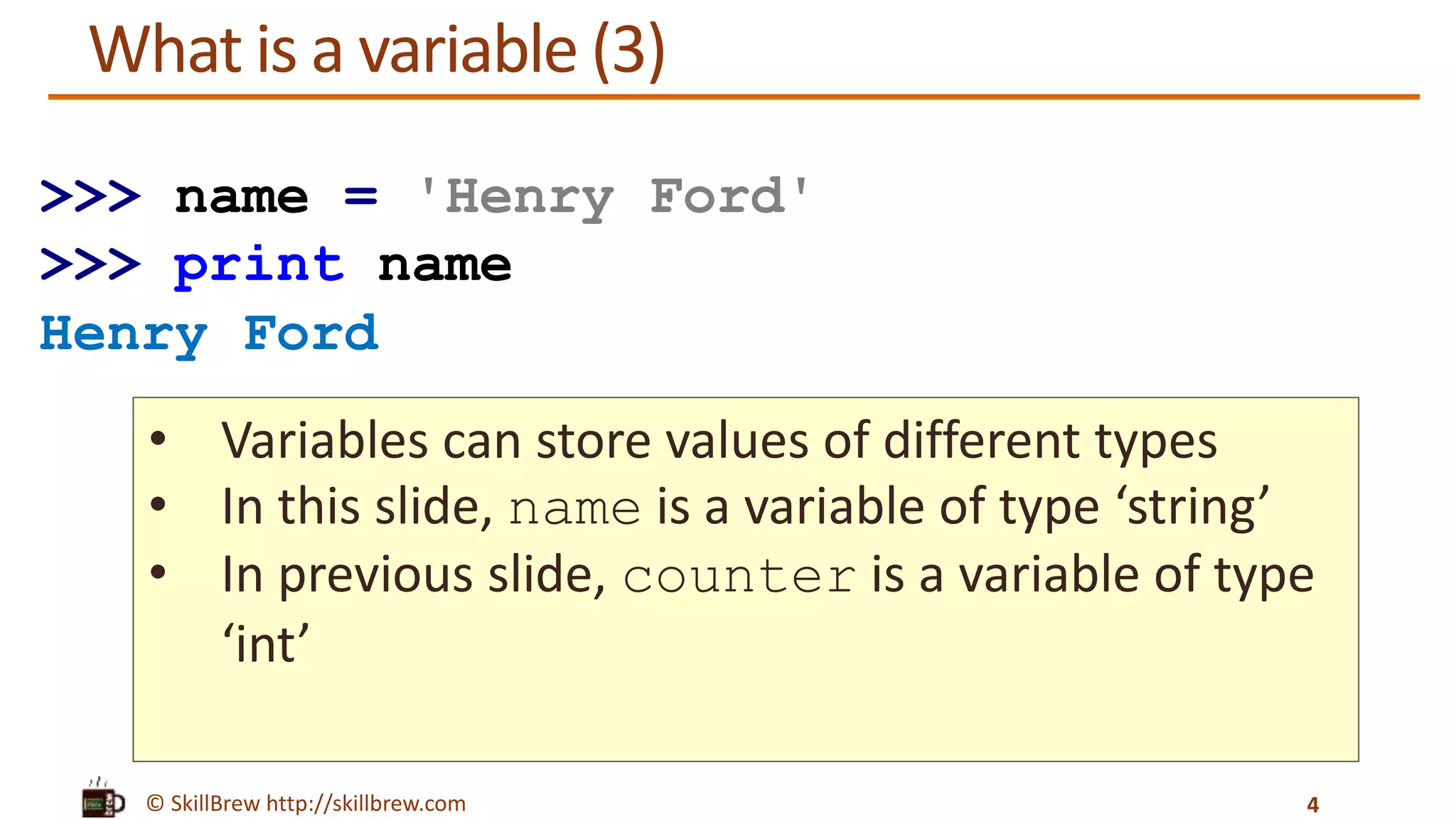
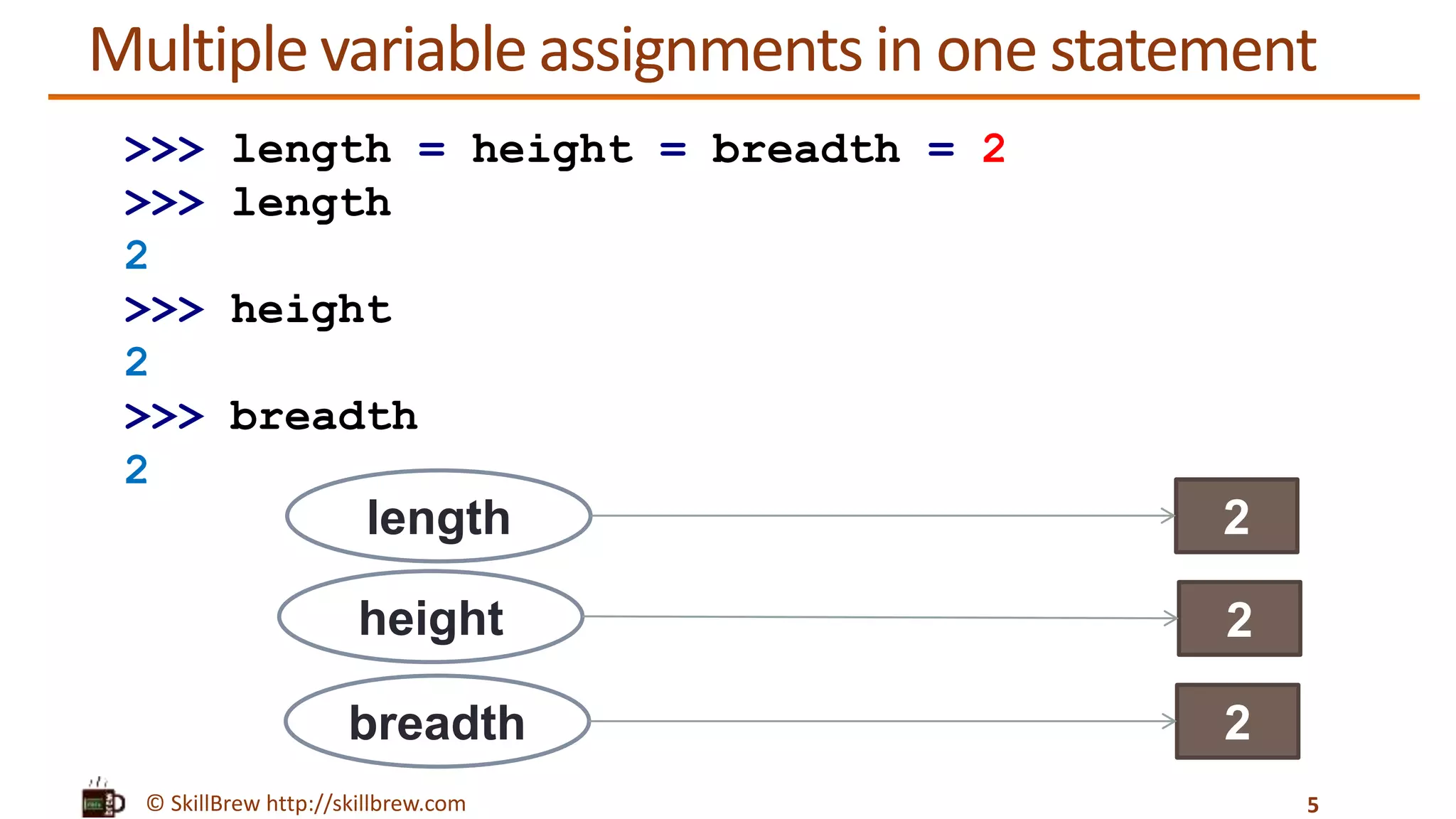
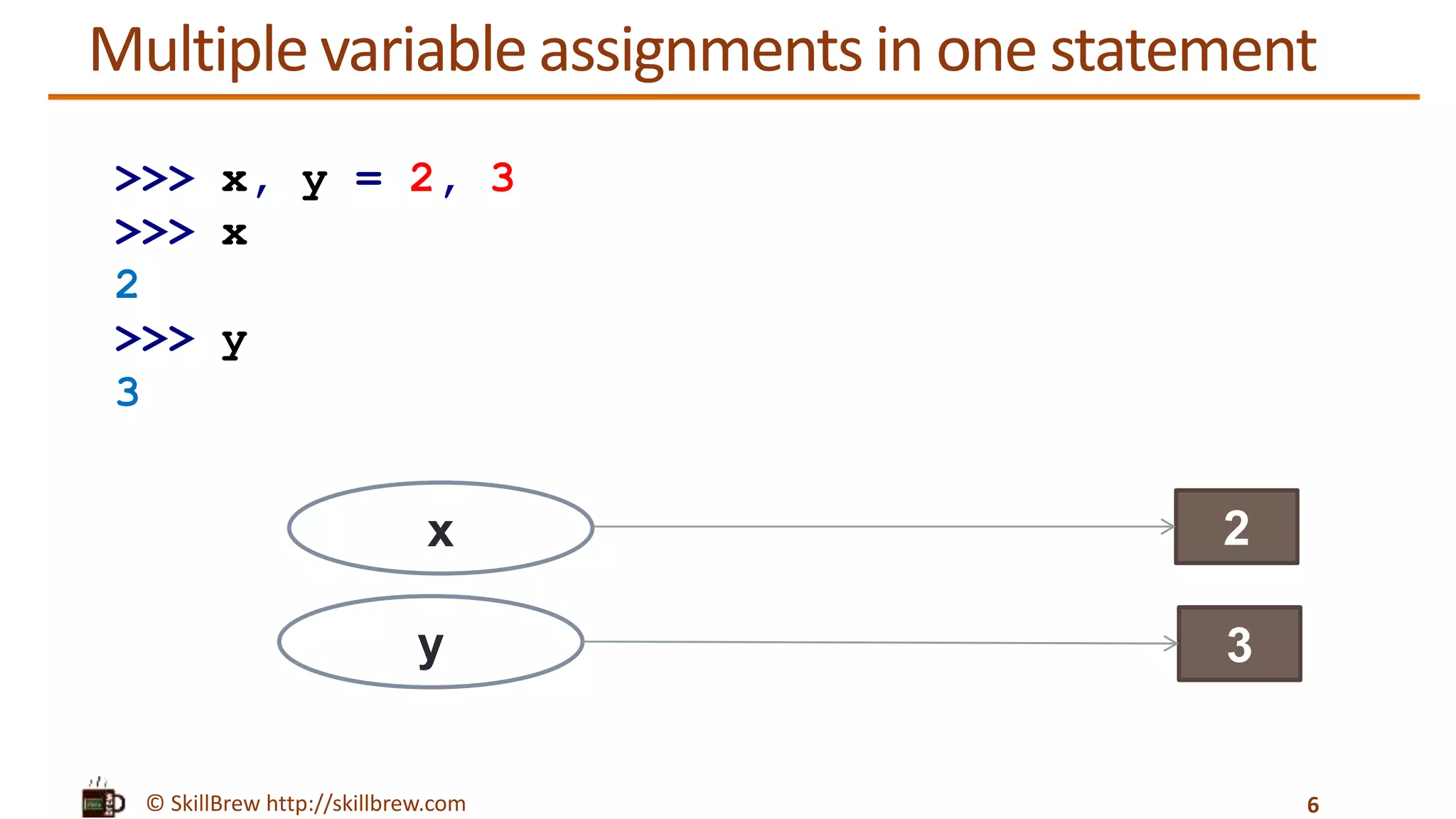
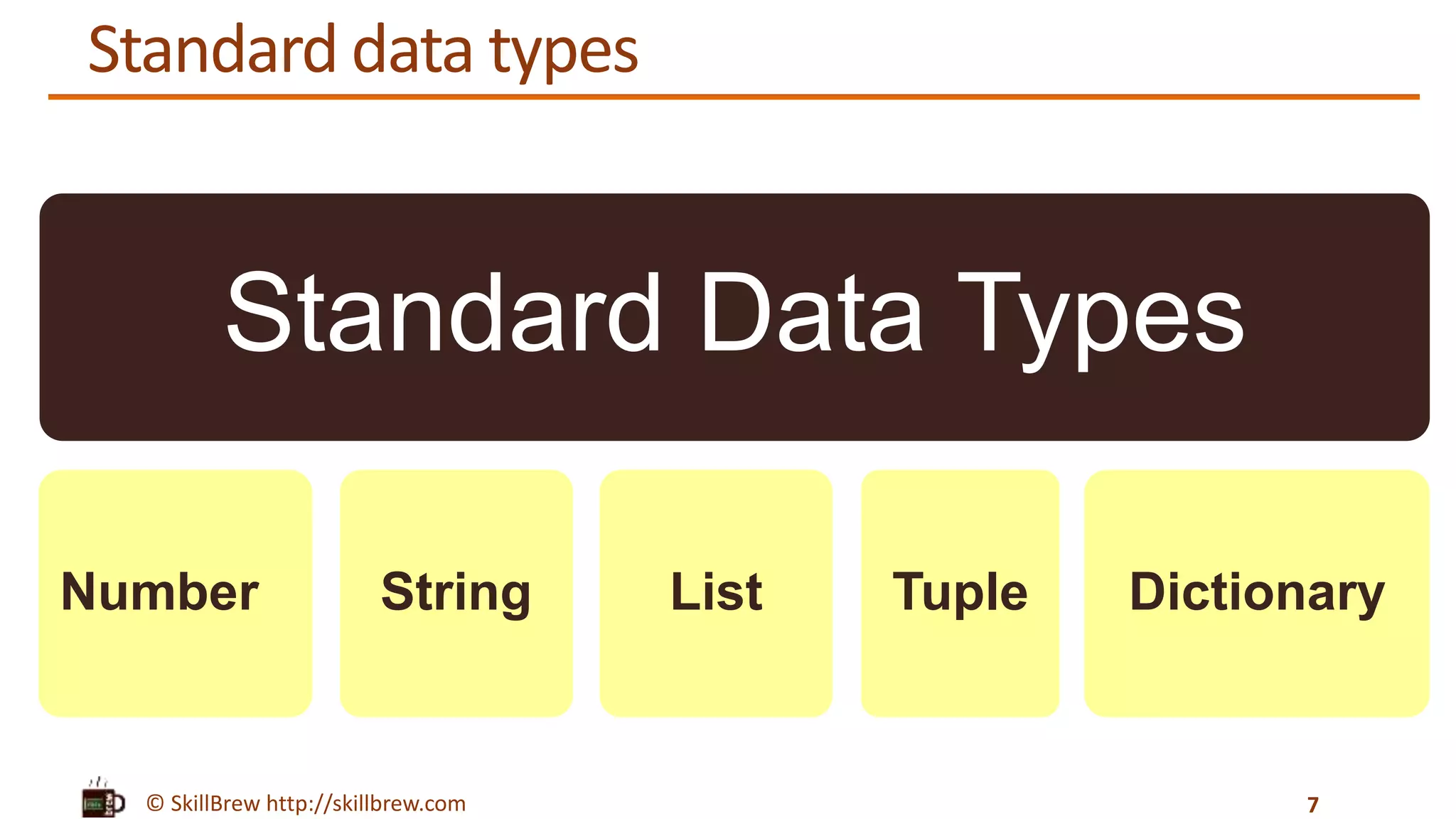
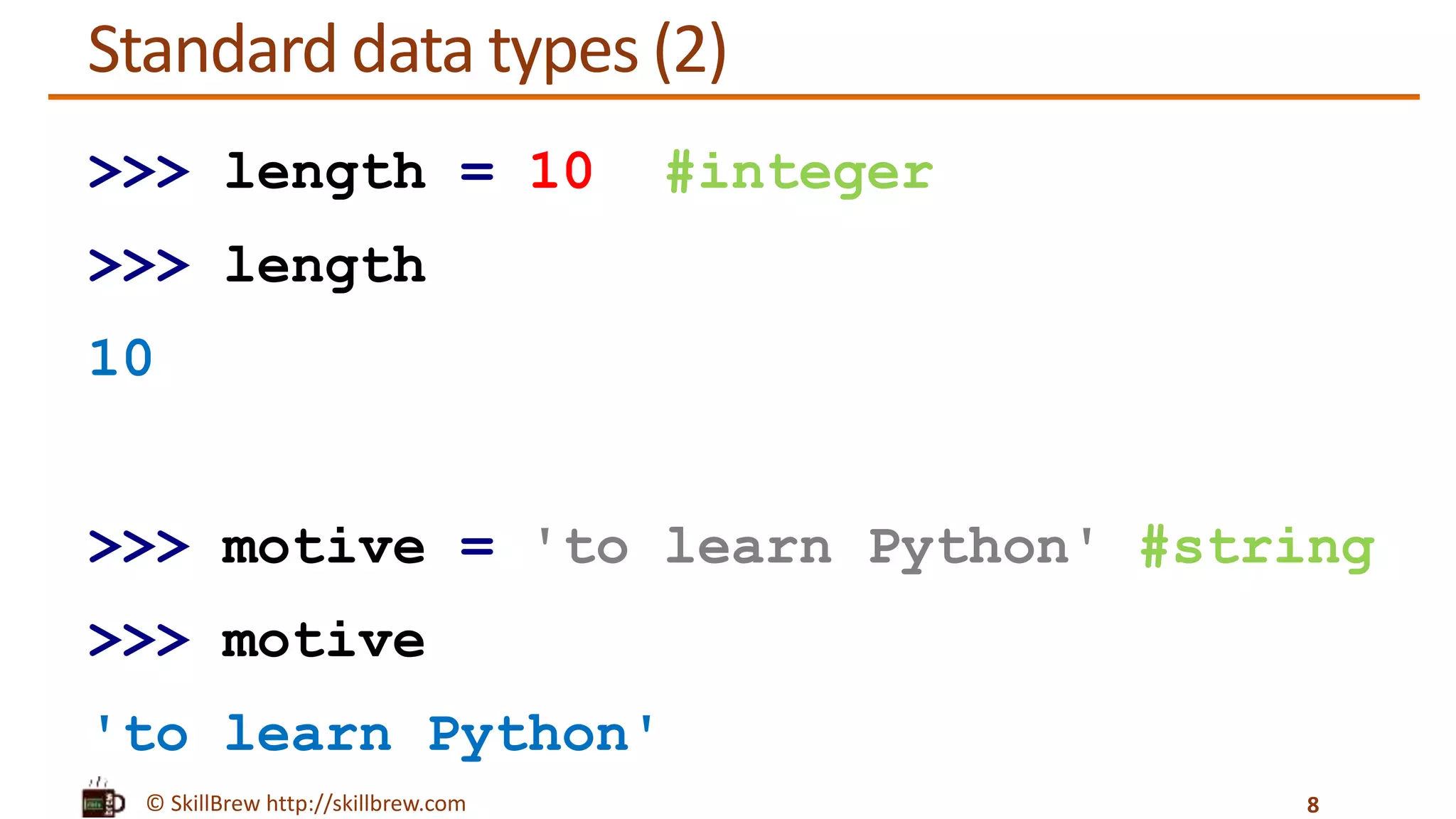
![© SkillBrew http://skillbrew.com Standard data types (3) >>> colors = ['brown', 'black', 'orange'] #list >>> colors ['brown', 'black', 'orange'] >>> logs = ('skillbrew.com', 500) #tuple >>> logs ('skillbrew.com', 500) 9](https://image.slidesharecdn.com/pythonprogrammingessentials-m5-variables-140819043156-phpapp02/75/Python-Programming-Essentials-M5-Variables-9-2048.jpg)
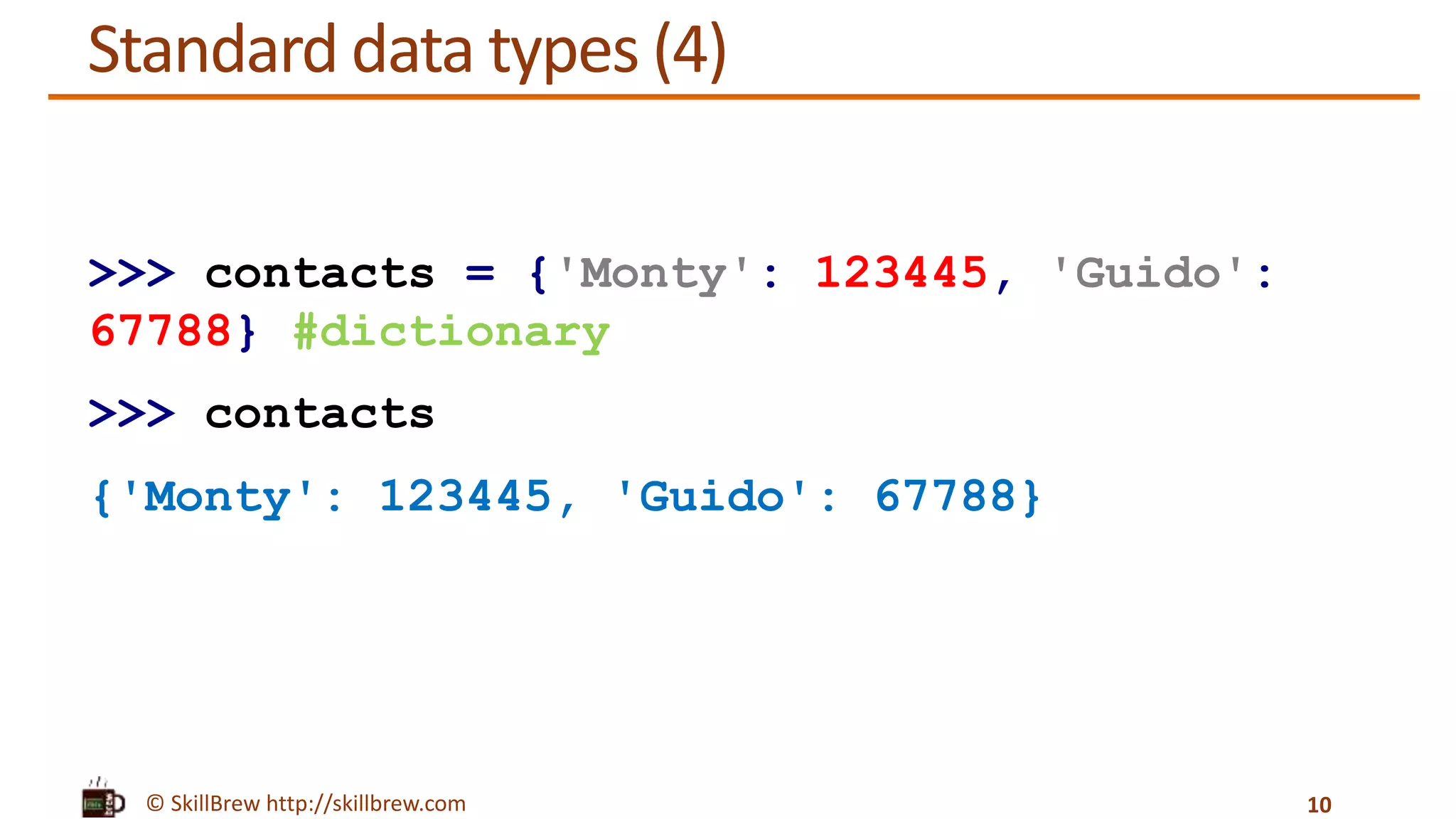
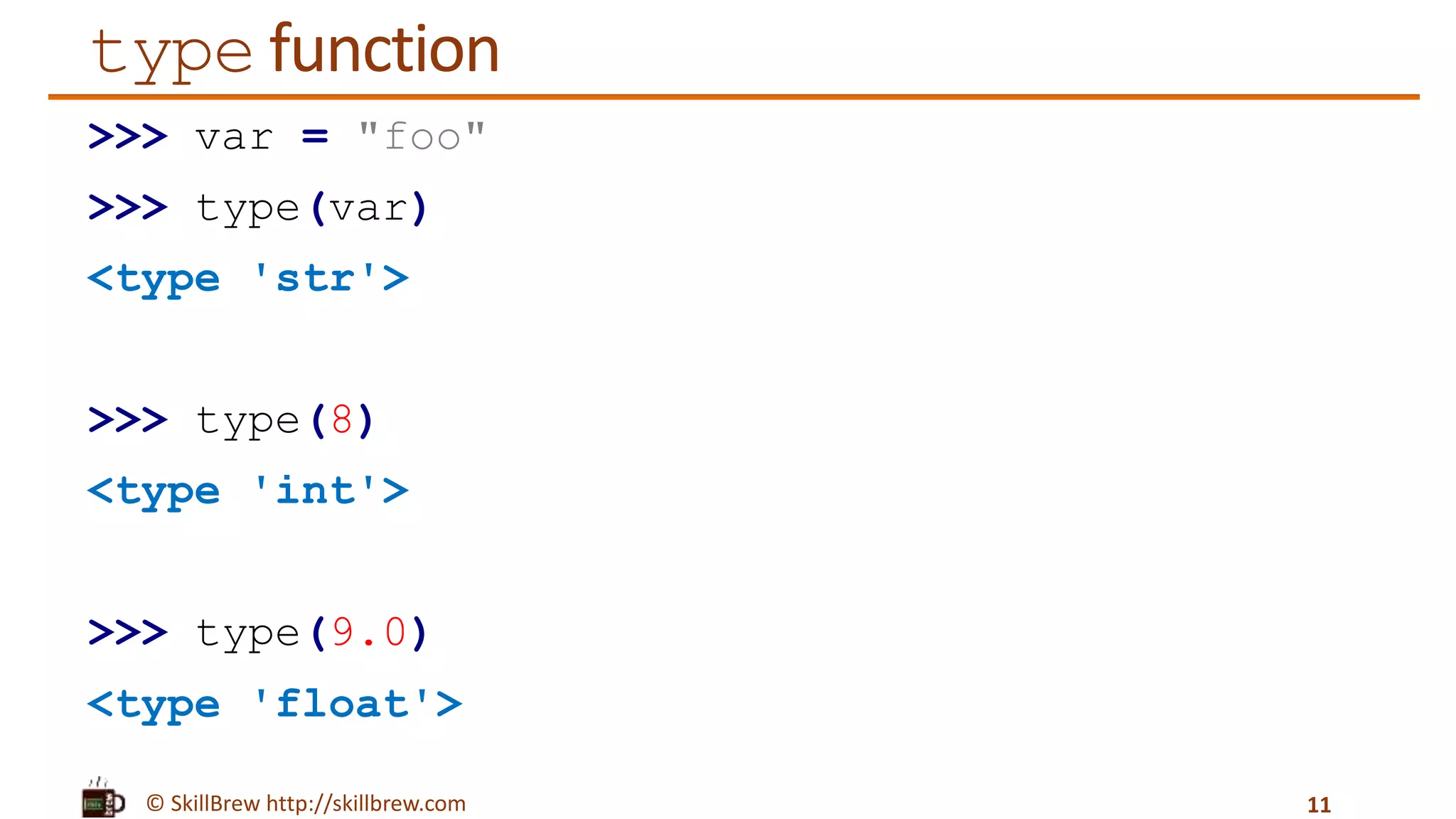
![© SkillBrew http://skillbrew.com type function >>> type([1, 2, 3]) <type 'list'> >>> type((1, 2, 3)) <type 'tuple'> >>> type({'1': 'one'}) <type 'dict'> 12](https://image.slidesharecdn.com/pythonprogrammingessentials-m5-variables-140819043156-phpapp02/75/Python-Programming-Essentials-M5-Variables-12-2048.jpg)
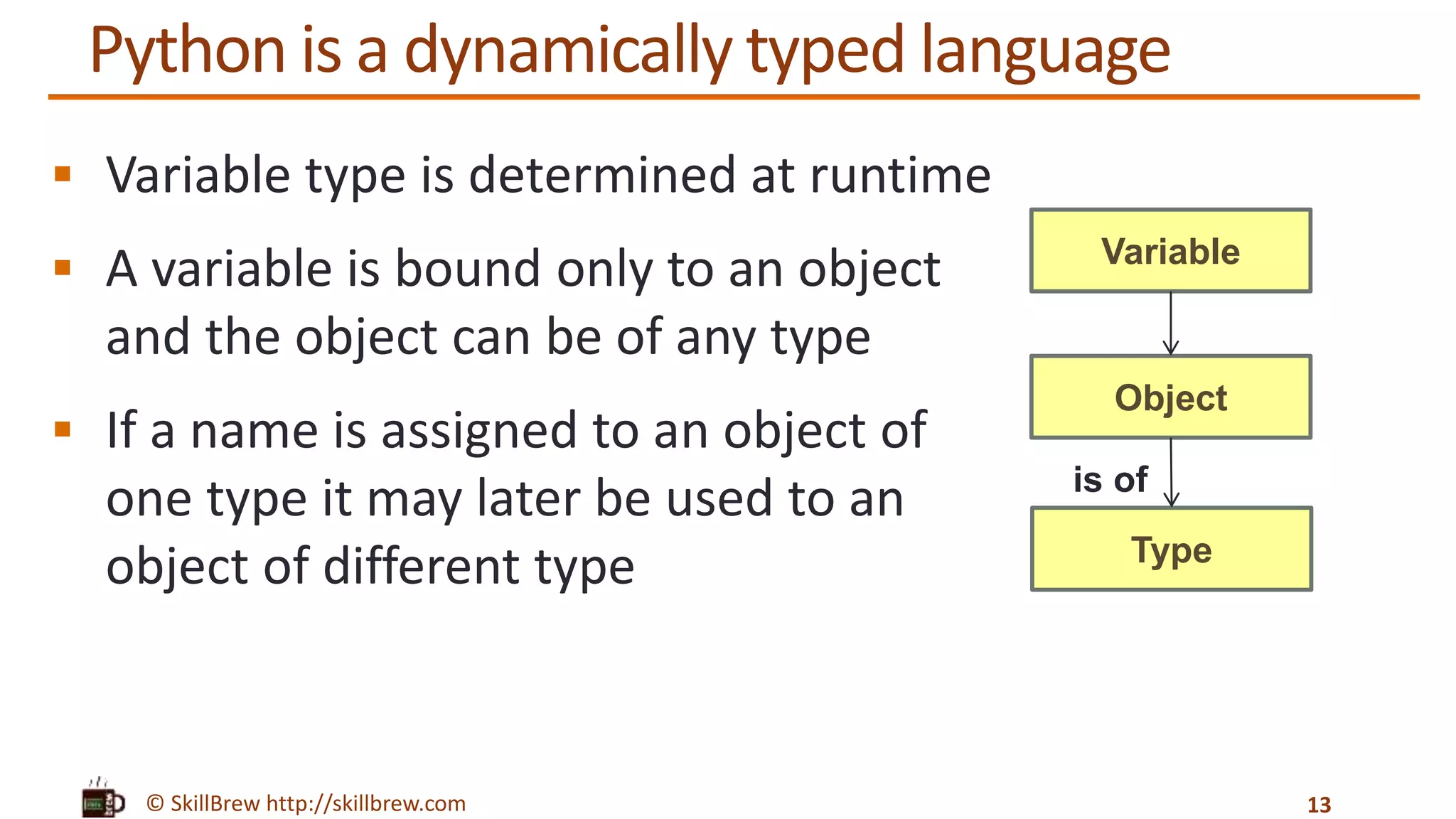
![© SkillBrew http://skillbrew.com Python is a dynamically typed language (2) 14 >>> x = 10 >>> x 10 >>> type(x) <type 'int'> >>> x = 'foo' >>> x 'foo' >>> type(x) <type 'str'> >>> x = ['one', 2, 'three'] >>> type(x) <type 'list'>](https://image.slidesharecdn.com/pythonprogrammingessentials-m5-variables-140819043156-phpapp02/75/Python-Programming-Essentials-M5-Variables-14-2048.jpg)
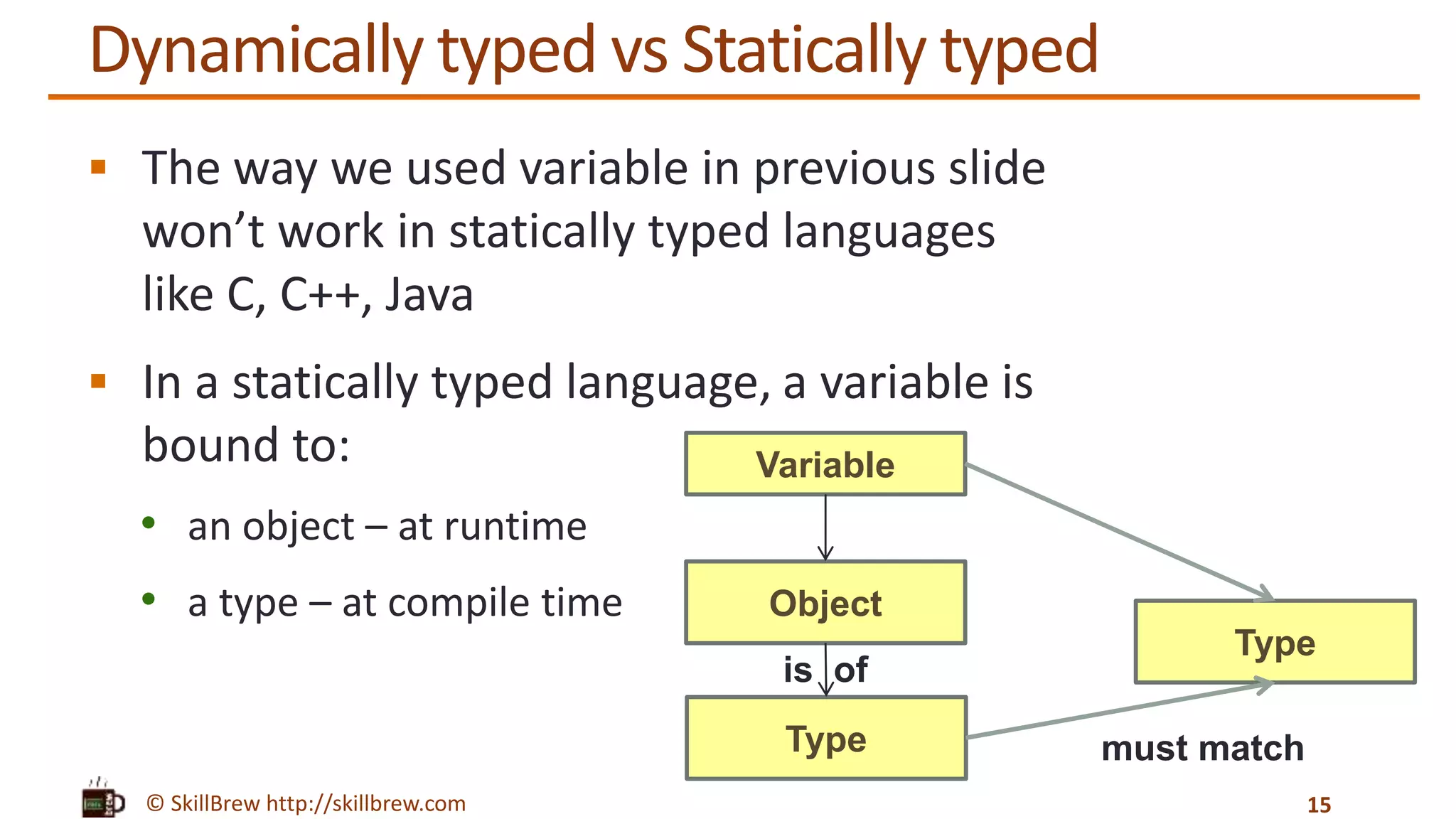
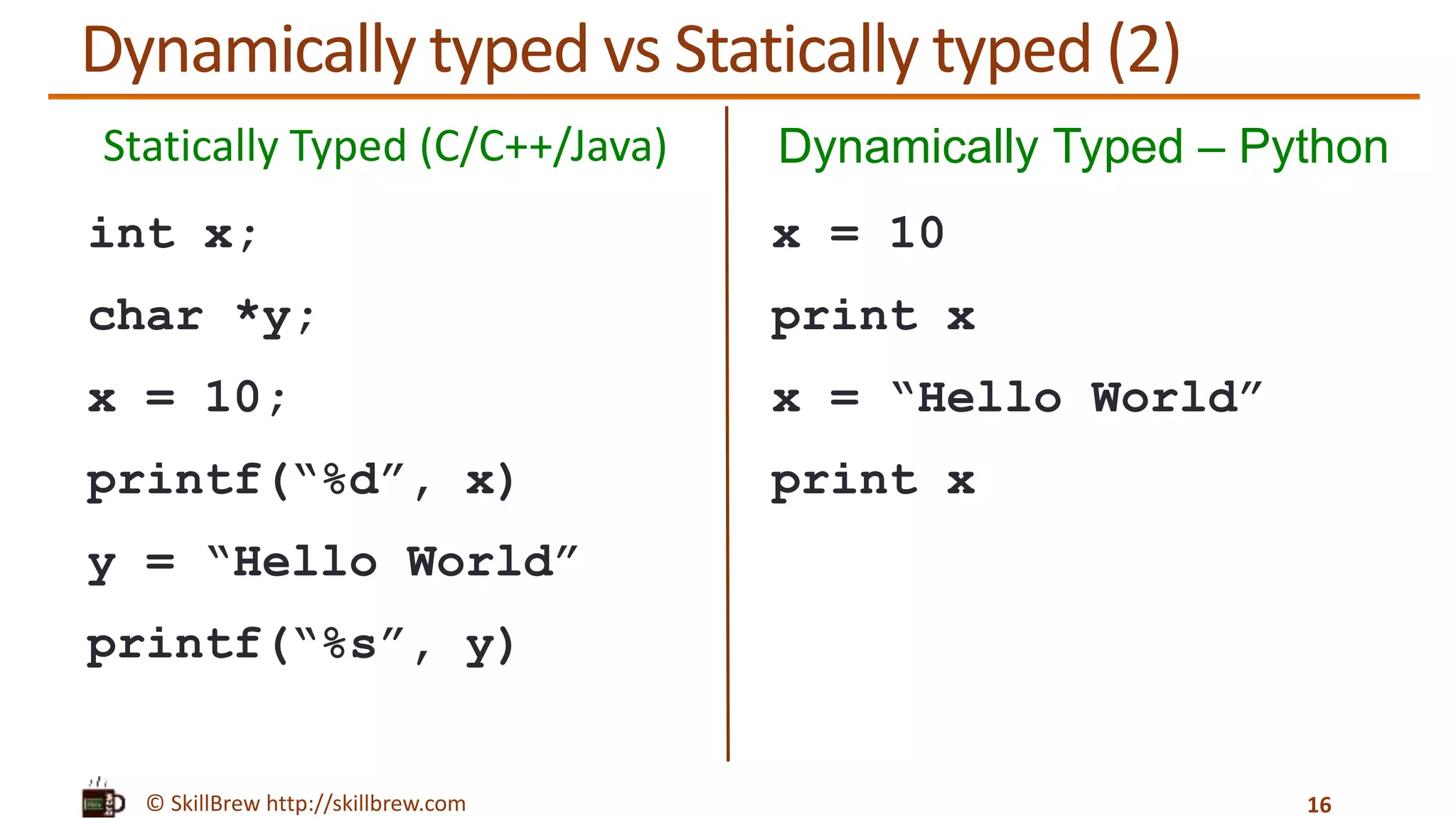
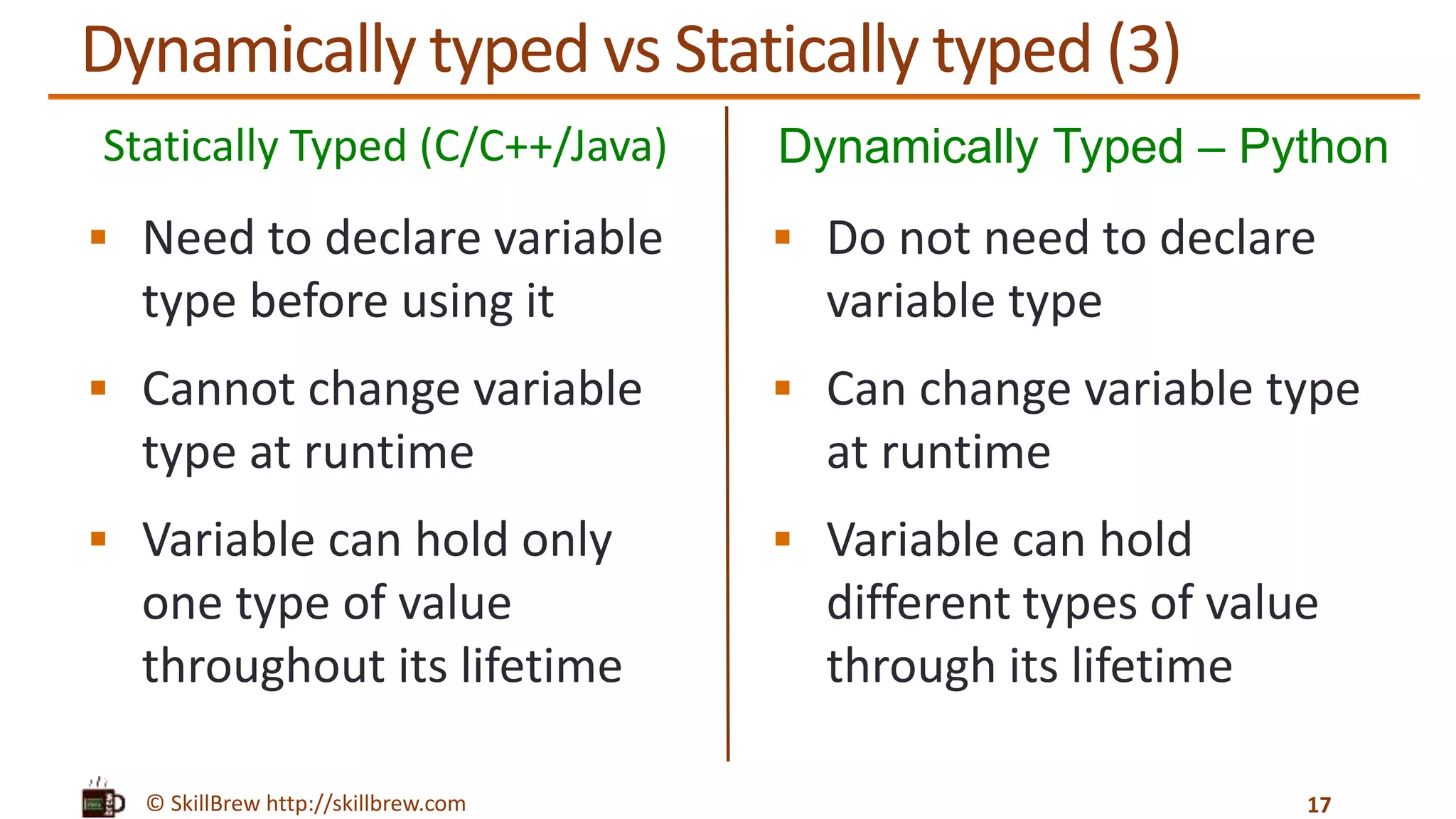
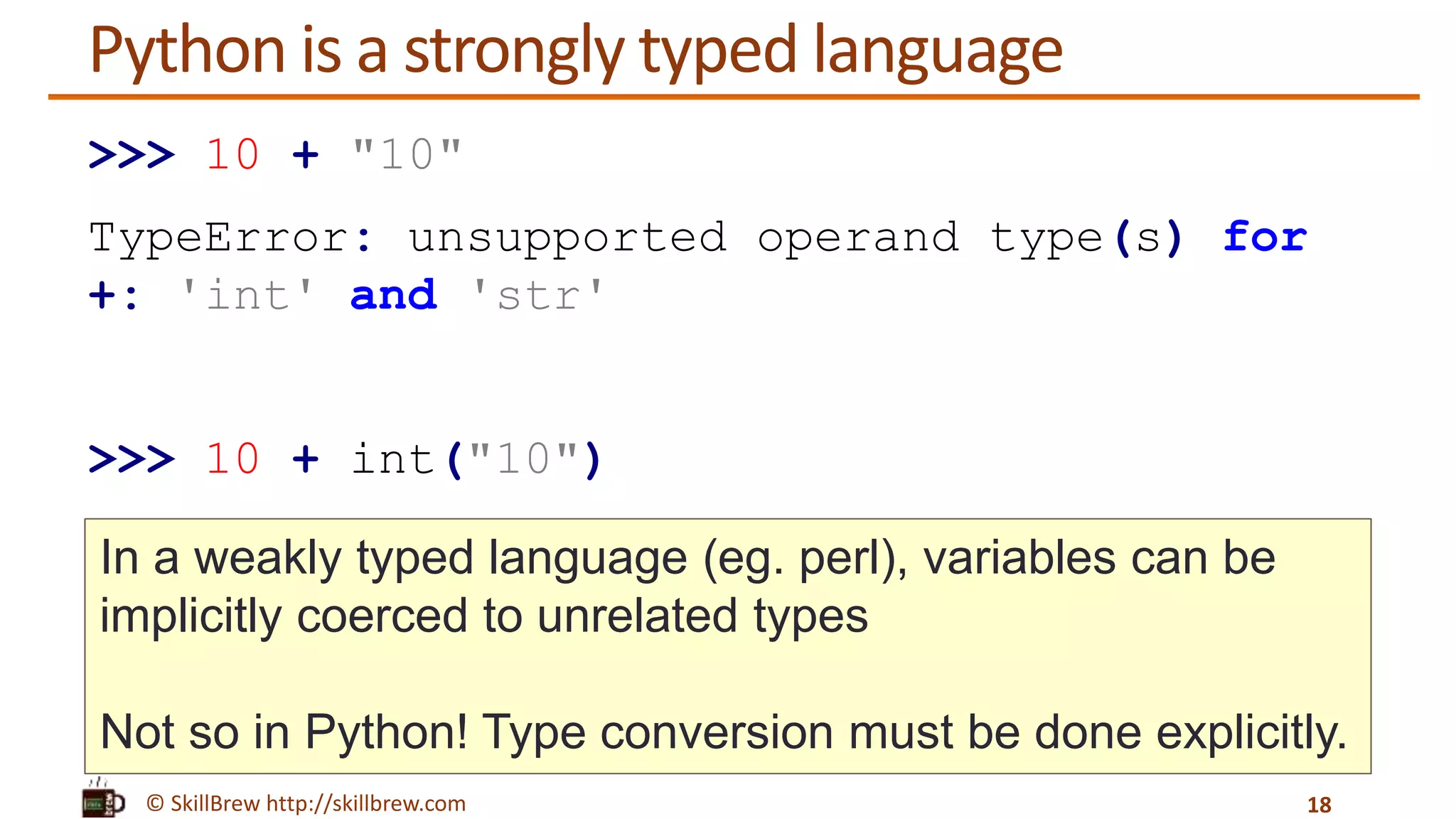
![© SkillBrew http://skillbrew.com Variable naming rules Variable names must begin with a letter [a-zA- Z] or an underscore (_) Other characters can be letters[a-zA-Z], numbers [0-9] or _ Variable names are case sensitive There are some reserved keywords that cannot be used as variable names 19](https://image.slidesharecdn.com/pythonprogrammingessentials-m5-variables-140819043156-phpapp02/75/Python-Programming-Essentials-M5-Variables-19-2048.jpg)
